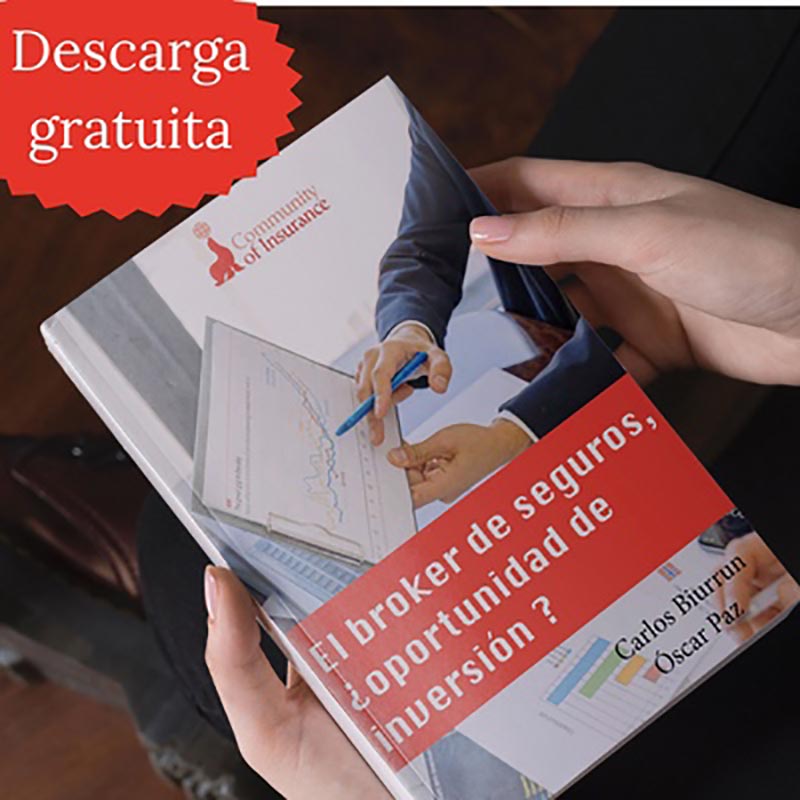[vc_row][vc_column][ad id=»26553″][vc_column_text][box type=»info» bg=»#» color=»#» border=»#» radius=»0″ fontsize=»12″]
 El autor, Nicholas Davenport, Asesor y Consejero de varias empresas aseguradoras y sindicatos del Lloyd´s, además de ex presidente de BIPAR, critica en el articulo que a continuación publicamos en su versión original, al Gobierno Británico por las consecuencias muy negativas de la ruptura con la UE cuyas negociaciones para llevarla a efecto comenzarán en marzo de 2017, según señaló en Birmingham la primera ministra Teresa May, “sin importar el coste para las empresas y la City de Londres con sus servicios financieros, incluyendo Lloyd y el mercado internacional de seguros. Mr. Davenport señala que “75 000 puestos de trabajo pueden estar en juego en la ciudad de Londres”. “Las perspectivas para la industria del reino Unido y sus servicios financieros en solitario parecen sombrías y va a obligar a muchos aseguradores a redefinir sus estrategias de crecimiento ya que alrededor de 5.500 empresas se benefician del pasaporte único”. “La dura realidad, señala Davenport, es que la UE representa el 55% de las exportaciones del Reino Unido y éste sólo representa el 10% de las exportaciones de la UE. La mano negociadora de la UE es mucho más fuerte que la del Reino Unido. La UE puede quedarse de brazos cruzados y esperar a que el Reino Unido acepta la libre circulación de personas. Termina, señalando su pesimismo en los resultados de unas negociaciones que serán muy complejas. Content[/box]
El autor, Nicholas Davenport, Asesor y Consejero de varias empresas aseguradoras y sindicatos del Lloyd´s, además de ex presidente de BIPAR, critica en el articulo que a continuación publicamos en su versión original, al Gobierno Británico por las consecuencias muy negativas de la ruptura con la UE cuyas negociaciones para llevarla a efecto comenzarán en marzo de 2017, según señaló en Birmingham la primera ministra Teresa May, “sin importar el coste para las empresas y la City de Londres con sus servicios financieros, incluyendo Lloyd y el mercado internacional de seguros. Mr. Davenport señala que “75 000 puestos de trabajo pueden estar en juego en la ciudad de Londres”. “Las perspectivas para la industria del reino Unido y sus servicios financieros en solitario parecen sombrías y va a obligar a muchos aseguradores a redefinir sus estrategias de crecimiento ya que alrededor de 5.500 empresas se benefician del pasaporte único”. “La dura realidad, señala Davenport, es que la UE representa el 55% de las exportaciones del Reino Unido y éste sólo representa el 10% de las exportaciones de la UE. La mano negociadora de la UE es mucho más fuerte que la del Reino Unido. La UE puede quedarse de brazos cruzados y esperar a que el Reino Unido acepta la libre circulación de personas. Termina, señalando su pesimismo en los resultados de unas negociaciones que serán muy complejas. Content[/box]
 Nicholas Davenport, CEO EIS Partners.
Nicholas Davenport, CEO EIS Partners.
Some have called it the biggest political event in Europe since World War 2. The present UK government is determined, in the words of the Prime Minister Theresa May, that the marginal 52/48 referendum vote is valid and constitutional, and that “Brexit means Brexit” (whatever that means!). In practice, the present Conservative government, with a slender majority of 12, is held to ransom by a core of “hard Brexiteers” numbering about 25, who are driving her towards signing Article 50 to leave the EU by the end of March 2017 – almost regardless of the cost to business and the City of London’s financial services including Lloyd’s and the international insurance market. 75 000 jobs in the City are said to be at risk.
In fact it’s still unclear what form Brexit will take and what the impact will be on the UK, indeed on Europe as a whole. Some have likened it to deciding to jump off a cliff, without knowing what lies below. The country remains divided down the middle. Brexiteers are certain that the recovery of sovereignty will lead to an efficient fast-growing economy (Singapore is often quoted as an example). The German head of the Axel Springer group, Mathias Döpfner, is a surprise supporter of this view: he told The Financial Times this week that he expects the UK economy to power ahead of the rest of the EU within 3 to 5 years.
On the other hand, the head of Nissan Europe, Carlos Ghosn, has demanded compensation from the UK government for loss of the EU markets for his Sunderland factory – failing which it will close with the loss of thousands of jobs. Sunderland, ironically, was the town with the largest vote, 72%, in favour of Brexit. The British have an expression for this: “turkeys voting for Christmas”.
So the simple fact is: no-one knows what’s going to happen, the government included. There is no strategy, just “consultation”. Consultation with business is a one-way street: business is telling the government they don’t want Brexit, the country until June 24th was the most economically successful in the whole EU, in fact business had never been better. For those who remember the 1970s when Britain was “the sick man of Europe”, membership of the EU over the last 43 years is the obvious reason for its prosperity. The government for the time being is ignoring this feedback. It falls back on generalities about recovering sovereignty and taking control. The “harder” Brexiteer politicians insist that since the UK is an important market for French wine and German cars and that the EU will be forced to back down and do a deal on tariffs and trade. As business people know, this is unlikely to happen.
The hard fact though is that though the EU represents 55% of UK exports, the UK only accounts for 10% of EU exports. The negotiating hand of the EU is far stronger than that of the UK. The EU can sit on its hands and refuse to do a deal unless the UK accepts Freedom of Movement of People. After 2 years of negotiation, the outcome is almost certainly going to be “no deal”.
For Financial Services, including Insurance, the issue is Passporting, the tool by which banks and insurers offer services across borders. Some 5500 UK firms benefit from passported access to the Single Market. Some €30 billion of direct tax receipts could be lost in tax revenues if those passports were to be lost, €75 billion of indirect taxes. The EU says very simply: no freedom of movement of people, no passports. Where does the UK go from there? It has to fall back on World trade Organisation rules, and the reciprocal tariffs they imply.
There are ways for Insurance to continue to work across borders. For Lloyd’s and Lloyd’s coverholders, the most likely outcome is for Lloyd’s to establish a corporate entity somewhere in the EU, to act as a “fronter”, enabling Lloyd’s syndicates to operate as reinsurers of such an entity. 10% of Lloyd’s total premiums are written through European coverholders, and it is vital this income should be protected.
Pro-Europeans, including almost all the City of London, rather perversely hope that in the meantime things will go badly for the rest of the EU: the effects of referendums in Hungary and Italy, a looming banking crisis in Germany, and political uncertainty in Spain and Austria. France and Germany will almost certainly have new leaders by the end of 2017.
The best outcome for the UK, as Nicolas Sarkozy suggested this week, could be that Europe heeds the lessons of the Brexit referendum and the messages from around the continent, and changes itself – unloading the dinosaurs in Brussels (especially the President of the Commission Jean-Claude Juncker, a bitter enemy of the UK), and redefining itself as more flexible, more responsive and less dogmatic. Then the British could vote again, to remain part of the Europe to which they belong.
But how realistic is this prospect? The outlook for a solitary UK and its financial services industry looks bleak as the politicians charge towards the edge of the cliff.[/vc_column_text][/vc_column][/vc_row]






